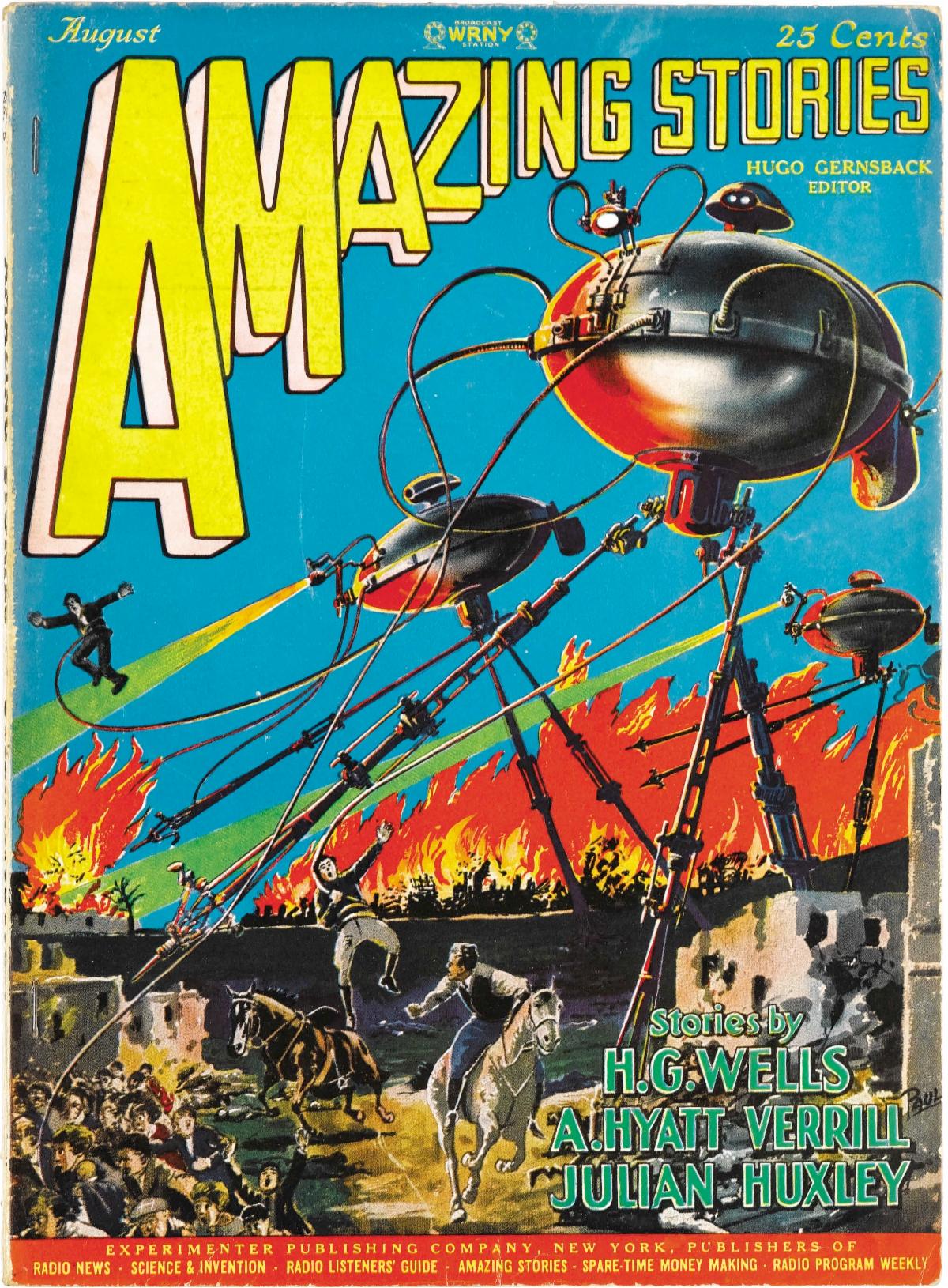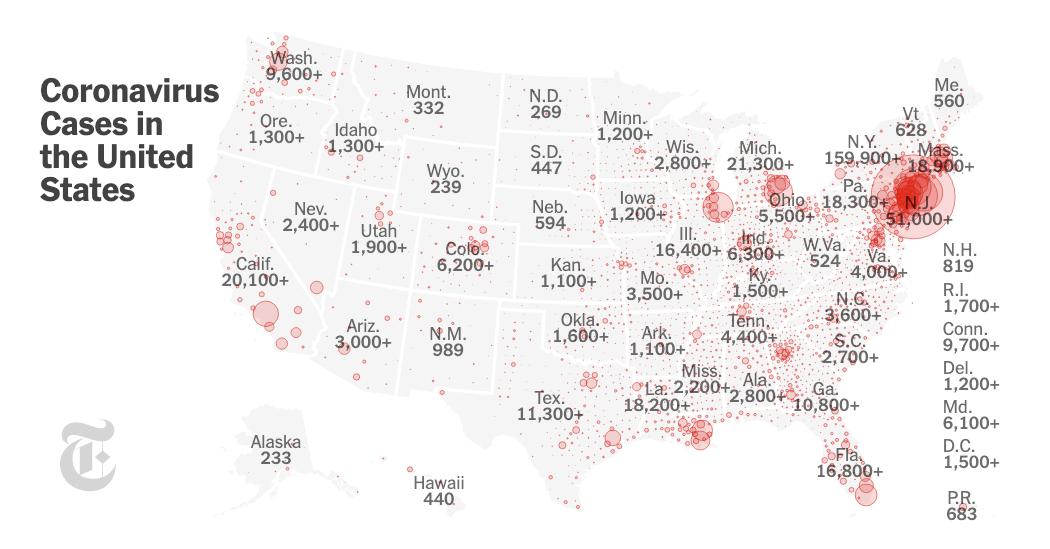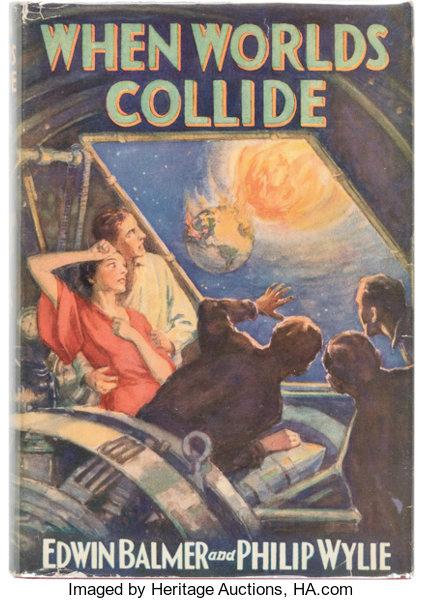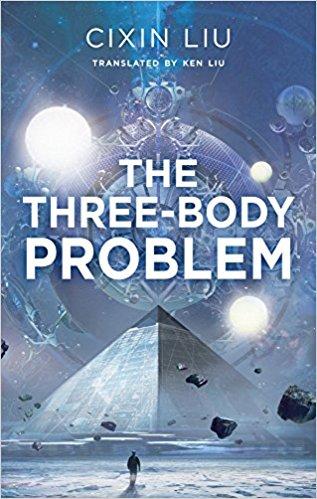Victor Motti (
Director of the World Futures Studies Federation) and myself produced a
YouTube video dialogue on March 27, 2020 discussing my idea that we should approach the corona virus pandemic as if we are characters in a science fiction disaster novel. The video can be viewed at:
Science Fiction and the Future of the Corona Pandemic.
When I announced the new video and provided a short summary of the dialogue on the
World Futures Studies Federation email discussion list, my proposal for how to approach the pandemic created a furor of debate and dialogue on the value of science fiction in understanding our present world crisis and more generally the value of science fiction in imagining and thinking about the future. I apparently hit a nerve.
At the time I was already contemplating writing an essay to accompany the video and better flush out and explain my idea. Here is the essay; perhaps it will evolve further, but as of April 10th, 2020, here are my thoughts:
* * *
A few weeks ago I was talking to my handyman and I said to him that the emerging coronavirus pandemic seemed to me like a science fiction disaster novel. My handyman quickly replied that yes, that was true, except we were in the novel having to live through it. And at that moment it dawned on me that yes, perhaps it made very good sense, for a lot of different reasons, to understand our present reality and to guide our actions as if we are characters in a science fiction disaster novel.

At least since H. G. Wells in
The War of the Worlds envisioned how humans, while complacent and going about their normal daily business and affairs, were shocked by a "bolt out of the blue," unsettling everyone and everything, science fiction writers have thoughtfully and vividly imagined all kinds of possible global disasters and have written numerous dramatic stories describing how people would react to such worldwide cataclysms. From diverse perspectives, science fiction writers have explored and illuminated the kind of reality in which we now find ourselves.
Whereas our broadcast news, our social media, and our collective state of consciousness are by and large focused on the events of the day and the relative here and now, science fiction, on the other hand, delves repeatedly into the fantastical and the diverse possibilities of the future and other worlds. At the core of their profession, science fiction writers, whether imagining disasters, utopias, or alien contact, aspire to break out of the norm and the normal and expand our consciousness beyond the here and now.
Of special importance, the good science fiction novel provokes us into deeply thinking about the future, heightening our "future consciousness." We are now in one of those imagined futures of science fiction. Normality and the status quo have been disrupted. But as history and evolutionary science reveal and science fiction has repeatedly argued, we were always just floating on an island of momentary protected stability, surrounded on all sides by the turbulent fluidity of transforming time. The waves of change have now come rushing in over the barriers of civilization. The ground is shaking; the sky has fallen.
Although experiencing a disaster may focus our attention on survival in the present, equally, if not more so, a disaster turns our attention to the future. Within science fiction envisioning disasters are frequently intended as warnings, motivating us to prepare for what might happen tomorrow. Further, living through a disaster shocks us out of our routine habits of thought and behavior. We can no longer assume that tomorrow will simply be like today. The future rises up as a uncertain reality and we have to grapple with this revelation. We are in a science fiction novel with our eyes on the future.
As I have watched the numbers, both nationally and globally, go up and up everyday, I quickly realized that we were riding an exponential curve, where each day there were more new cases and more new deaths than the previous day. The future was coming at us faster and faster.

As I watched the news, I listened to commentators and public figures present an array of points of view on the nature of what was happening, where it all was heading and what we should do about it. On social media I observed an even greater multitude of opinions and strategies. As to be expected from reading science fiction disaster novels, although there are numerous calls for collaborative and unified efforts in meeting the disaster, there are also many different voices and different kinds of characters in the unfolding narrative of our times. Some people scream and panic, some hide their heads and go mute, some blame others, some dismiss and minimize the significance of what is happening, many act bravely, and some try to be both objective and forward looking. It is all part of the drama, confusion, psychology, tragedy, and inspirational qualities of the complex story we find ourselves within, the kind of complex story frequently envisioned in science fiction.
Amidst this cacophony of voices, I noticed a scenario that routinely has appeared in the science fiction disaster novel. The scientists (which can include medical professionals) warn the government, the powers that be, and the general public that a great disaster is coming-the comet is going to hit, the plague is going to sweep across the continents--and we had better prepare. Yet various leaders, their minds clouded and myopic wanting to preserve the status quo--their consciousness cemented in the present and/or the past--downplay the severity of the imminent danger. (There are, of course, some leaders who attentively listen to the scientists, but many notably do not.) As inevitably becomes increasingly apparent, with tragic consequences, the scientists are right, and as in many science fiction disaster novels, they emerge as one key set of heroes in the story. A critical strength in good science fiction is that the writer of the novel or story is thoughtfully informed regarding relevant scientific knowledge and principles, and the science presented in the story enlightens the reality of the situation. Normal politics and conservative mindsets, as frequently depicted in such novels, obscure the reality.
As any well thought out science fiction disaster novel will describe in riveting detail, there is much more than physical forces of nature and technological countermeasures involved in understanding and confronting a catastrophe. Realistic and engaging science fiction should not be stereotyped as just dealing with science and technology. As illustrated above, there are social, political, and psychological factors at work in any disaster. The news and media has highlighted, among other dimensions, the economic repercussions and potential long term consequences of our present pandemic.
As I have argued, science fiction is actually about the "future of everything," from society, culture, politics, and the environment to the inner psyche and our deepest values and most intimate thoughts and feelings. The present pandemic is affecting and will continue to impact all dimensions of human reality, and this ubiquitous rippling outward and inward into everything does not surprise me. I have read as much, in many different imaginary visions within science fiction. As in numerous science fiction disaster novels, advances in science and technology--in our present situation in the biological sciences and medical technologies--may play a key role in successfully dealing with the worldwide challenges ahead, but all spheres of human civilization will, indeed have, become engaged in this struggle for survival and our collective sanity and well-being. The psychological impact, now and into the future, is going to be especially powerful. So science fiction jolts us out of the narrowness and complacency of the present, propelling us into the future, but a realistic future that involves transformations across all spheres of life.
One special reason why I see the value of taking a science fiction perspective on our present circumstances and the unfolding future is that unlike abstract and theoretical scenarios and quantitative studies predicting future possibilities and outlining general strategies of coping and adapting, science fiction presents concrete realistic narratives (albeit imaginative) involving unique characters and personalities who live through extraordinary events. The future and the fantastical is personalized and painted in rich sensory detail. The reader of science fiction vicariously lives the future, feels it, and perceives it in all its complexity and nuances. How does it feel to live through a disaster? This is what science fiction answers.
The human mind naturally resonates with the story or narrative, even if fictional. We are storytellers and inspired by our stories. As stories of the future and the fantastic, science fiction reaches all aspects of human consciousness or experience. Our thoughts, emotions, sense of personal identity, and values are all affected through the science fiction story. Science fiction educates and expands our consciousness along all these dimensions through simulated, but personalized raw experiences of the strange and extraordinary set in the form of psychologically engaging stories. We are directly within such a reality now, each of us individually, feeling and thinking about the transforming state of the world as it impacts on our lives and our futures. We are living the story of our future. As an avid reader of science fiction all the dimensions of my mind have been stimulated as I have vicariously lived many different stories of the future.
After thinking through a number of the above points, I
produced a YouTube dialogue together with my futurist
colleague, Victor Motti, the Director of the
World Futures Studies Federation, in which we discussed my idea of approaching the coronavirus pandemic as a character in a science fiction disaster novel. Victor suggested that there were (at least) three different ways people were responding to the pandemic: A quick knee-jerk reaction, often out of fear; optimization, as best as possible, of current ways of doing things; and an open, flexible mindset involving an "embracing of the novelty."
All three of these types of responses are, indeed occurring (and are usually envisioned as occurring within science fiction disaster stories), but the third choice strikes me as especially resonant with the science fiction mindset on the future. The future is going to be different than the present and past, and there will be great novelty and surprises. A key dimension about the future that both science fiction writers and futurists emphasize is that the future is filled with uncertainty, risk, and adventure. A natural human reaction is to recoil from uncertainty and risk, but the coronavirus pandemic pushes us into having to address the uncertainty and transformational nature of reality and the future. And it is often the heroes in science fiction novels who most willingly and courageously embrace the novelty, venturing forth into the unknown. As the famous futurist Barbara Marx Hubbard stated, "Our crisis is our opportunity." The crisis provokes evolution. Science fiction frequently includes characters adopting this attitude. We should not return to the good old days (which in many ways were not that good) but rather we should venture forward, with thoughtful optimism, both collectively and individually, into a new day and new way of being.
Connected with Victor's point about "embracing the novelty," I suggested that in living through this pandemic and evolving in the process we should attempt to live "wisdom narratives." It might seem odd to associate science fiction with wisdom, but numerous science fiction stories, including disaster narratives, include central characters who through challenge and struggle, persevere and learn and grow, acquiring wisdom in dealing with unsettled and difficult times. Many of the great science fiction novels about either disasters or the future are "wisdom narratives." Indeed, psychological studies on the development of wisdom seem to indicate that wisdom grows through trauma, adversity, and transformation being successfully faced and assimilated into one's psyche. The growth of wisdom occurs within pronounced transformational experiences. As such, given its fantastical and extraordinary scenarios, science fiction is a great "thought experiment" laboratory for thinking through the growth of wisdom. As I have argued in my writings, above all else, the path to a good future is through wisdom. So modeling ourselves on those heroic individuals who face the uncertainty, strangeness, and shifting currents of time, as portrayed in science fiction, we can aspire to live wisdom narratives through the cataclysm and furor of today. As noted above, science fiction offers unique characters, with whom we can personally empathize and resonate, who encounter and cope with extraordinary events. They can serve as inspirational exemplars for our own lives in this time of both crisis and opportunity. We are on the road to wisdom as the volcanoes erupt around us.
What is my strategy then for the present crisis? Envision you are in a science fiction novel--this is the future being born through great transformation--and aspire toward living wisely and growing further in wisdom, as you navigate through this unsettling reality. We need to become heroes for ourselves--"strangers in a strange land," for we are different and the world is different--learning how guide the wave of change around us and within us toward an unknown destination. If enough of us do this collectively, we will discover both a new world and new selves on the other side of the turbulent sea. In the process perhaps we will create a better human society.
Some vignettes from the novel:
Instead of riots and chaos in the streets, the streets are increasingly empty and still. The invisible enemy is lurking about out there beyond our homes. We have barricaded our doors and if we venture out we wear protective gloves and masks.
It is amazing how quickly and pervasively so much can change. Going to the grocery store has become an unnerving and frightening experience. Who can tell which bodies moving past me have already been hijacked by the insidious invading army of creatures of death?
Rather than rushing about through traffic and entertaining ourselves by shopping and going to restaurants, we are nestled and hopefully protected in our homes, surprisingly feeling more calm and centered than when we were jumping about in the world outside. Pollution is diminished; rush hour traffic is gone. Perhaps the world needed a pause from the frenzy of modern life?
Things are increasingly strange and bizarre. Toilet paper and Lysol spray have become scarce, highly valuable commodities. Many of my neighbors are sitting outside on their front porches, as if we have time traveled back to the 1940s. But one can't get too close. Having committed no crime, millions of us, often the most weak and vulnerable, are in forced solitary confinement.
Many are arguing that we should not go back to the way things were. Do all of us have to keep commuting to work? Increasingly we are connecting through our computer and communication technologies. I have been calling on the phone and Skyping with many of my friends, asking them how they are doing and what they think about the whole situation. Although secluded away I am talking with more people. Perhaps as world crises often provoke, we are evolving into something new and different, whether we want to or not? But what? Are we becoming even more cyborg-like, in which we interface and interact with physical and biological realities even more so through our machines? But online pornography is also on the rise. We desire even more, flesh to flesh contact, now that we can't shake hands or hug each other.
Perhaps we are also becoming more humanistic and grounded? Now deprived of many of our diversions, we are asking ourselves what is really important and valuable in our lives, both individually and collectively. Our minds have paused as well, having to reflect upon what are we doing here. Although there are multiple voices in the media--including an assortment of snake oil salesmen on TV--the world is not falling apart; we are uniting against a common enemy. We are in a war and there are many heroes coming forth, risking their lives.
Perhaps the world will finally unite; perhaps not; perhaps we will just continue to watch out for number one and barricade our minds against each other. But there is an "intelligent" living force that is attacking all of us. "The Martians have landed!"
Will science find an answer? Will our gadgets save us? Or will the solution come primarily from our character, our minds, and our hearts? "The future ain't what it used to be, and it never was." It is time to create a new tomorrow on the battlefield of earth.
There are countless engaging and enlightening science fiction disaster novels and stories. Starting from H. G. Wells' compelling classic narratives,
The World of the Worlds,
The War in the Air, and "The Star," a sample list of some of the best, chronically ordered, include:
- The Purple Cloud
- Darkness and Dawn
- The Poison Belt
- The Second Deluge
- When Worlds Collide
- Earth Abides
- The Day of the Triffids
- The Wanderer
- A Canticle for Leibowitz
- No Blade of Grass
- The Crystal World
- The Drowned World
- Alas, Babylon
- Lucifer's Hammer
- Doomsday Book
- Blood Music
- Darwinia
and for a contemporary Chinese vision of invasion, disaster, super-science, and emerging wisdom read the wondrous The Three-Body Problem trilogy by Cixin Liu.

